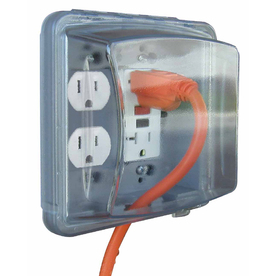I have a 20amp breaker powering powering 5 outlets in my garage and I want to put a 2000w element in my kettle. I understand a 20amp breaker will run 2000w but possibly only if it is a dedicated outlet? I can make sure nothing else is plugged in the other outlets with the exception of my garage door opener (I don't have a ladder tall enough to unplug it) but I can ensure it's not used but even when not in use it has the low voltage motion sensors and an led on the control panel (normal garage door stuff) is this possible or a bad idea
Thanks for any help hopefully I can understand any answers.
Sent from my iPhone using Home Brew
Thanks for any help hopefully I can understand any answers.
Sent from my iPhone using Home Brew











